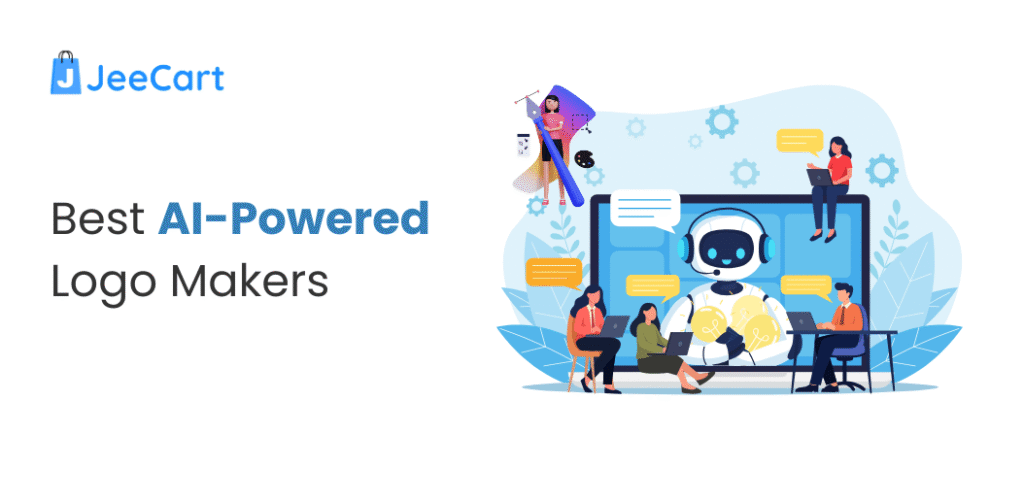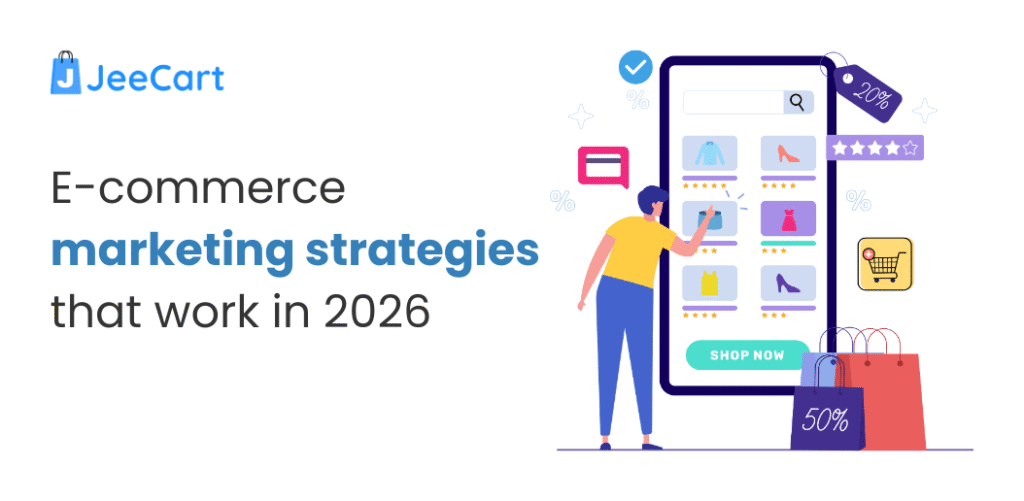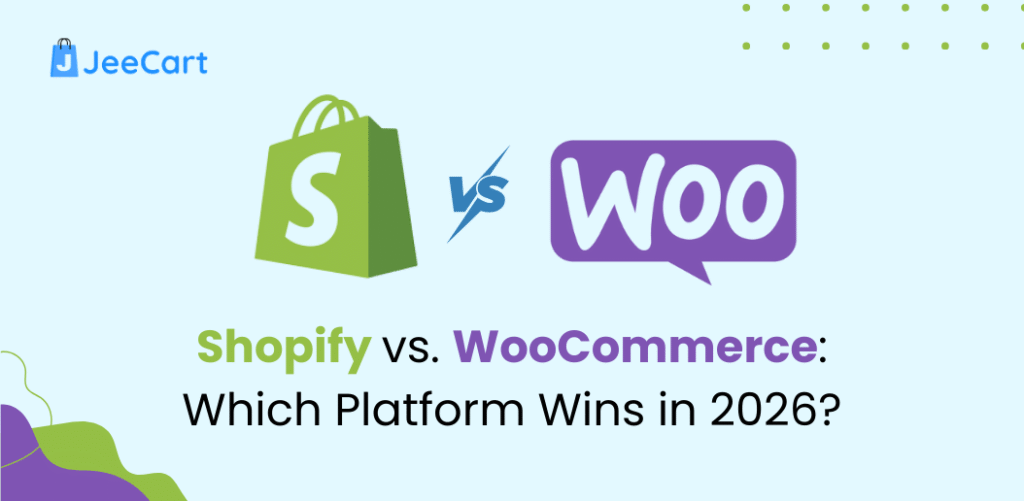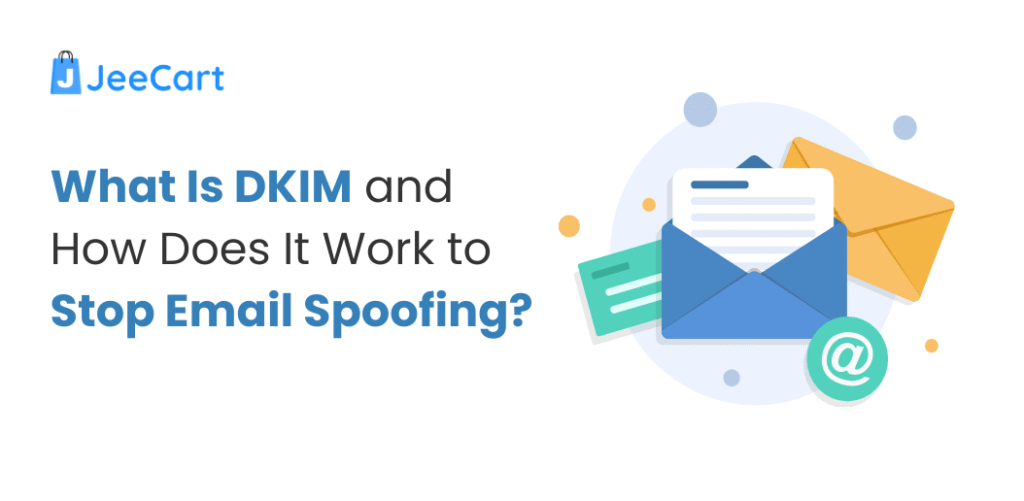
Have you ever noticed that some online stores seem to “get” you? They sometimes show you exactly what you want before you even know it. That’s not magic; it’s AI in eCommerce at work.
People expect diversity in eCommerce; it’s more than a nice touch. Customers in a shop want to be understood. They want brands that save them time, remember what they like, and make shopping online exciting instead of stressful. This is where AI enters. It takes simple lists of products and turns them into personalized shopping experiences for each user.
From analyzing customer behavior to predicting future buying trends, AI in eCommerce is redefining how online retail operates and how brands connect with their audiences.
Why Customization is Important in Online Shopping with AI in eCommerce
There are so many options for consumers these days. A lot of businesses have products, prices, and shipping times that are very much the same. Why do they pick one over the other?
Personalization based on AI helps brands make that happen. People are much more likely to click “add to cart” when they see goods that match their tastes, budgets, and browsing habits. It’s like having a seller who knows your style even though you haven’t said a word.
Personalization not only increases sales but also builds trust and loyalty. People go back to shops that “remember” them, making shopping feel friendly and valuable. It’s about making people feel connected in a place that can feel far from them.
How AI changes the process of a customer
AI affects almost every part of shopping, from finding things to paying for them, and even after that. It changes every part of the process in this way:
1. Finding products more intelligently
Think about how hard it is to find something on the Internet. As soon as you type “running shoes,” 2,000 hits pop up. AI helps narrow that down in an innovative way.
AI finds items that are a good fit for a shopper by looking at their browsing history, location, and even the amount of time they spend on certain pages. It can also change the search results so that different people see different goods based on what they like.
As a result? Instead of scrolling, spend more time enjoying shopping.
2. Customized suggestions
Have you ever thought about how Netflix knows what movie you’ll like next? In eCommerce, the same reasoning works.
AI learns from what people look at, click on, and buy. Then, it puts together personalized product suggestions, such as “You might also like” parts, outfit ideas, or “often bought together” bundles. To power that level of personalization at scale, many companies rely on cloud GPU infrastructure to run inference on demand. Northflank offers a modern GPU hosting stack built to support exactly these kinds of AI‑driven eCommerce workflows.
When someone is looking for a camera, they might also see deals on tripods or memory cards. That’s why it works so well; it’s helpful without being forceful.
3. Dynamic Content That Customizes to Each Shopper
AI makes sure that the images, banners, and ads on your website change based on who is scrolling.
Someone who is shopping for the first time might get a deal. If a customer comes back, they might see loyalty deals. There might be a “Back-to-School” sale for one person while they look at kids’ clothes, and a “New Arrivals in Sportswear” sign for another.
Because it can change, your website feels like it’s always alive, always current, and constantly growing.
4. Better customer service
A lot of people shop online now and use chatbots that are driven by AI. The best ones, like Convertway AI Chatbot, go beyond answering FAQs — acting like personal shopping assistants that guide, recommend, and resolve queries in real-time.
If a customer stays on a purchase page for a long time, the chatbot might ask, “Do you want to know if this comes in a smaller size?” “Need help finding a product like this?”
AI pwered customer gets better over time by learning from past conversations. This helps customers faster and reduces the need for constant human help.
5. Customized Checkout and Service After the Sale
When a customer checks out, the customization doesn’t end. Just before you pay, AI can offer related items (“Would you like to add a case for your phone?”) or rewards for customers who buy a lot. When someone buys something, the company can send them emails with tips on how to style their new clothes or set up their gadgets.
These little things make one-time buyers into those who will buy from you again. Through BotSpace, stores can automatically send post-purchase messages, feedback requests, or delivery updates on WhatsApp and Instagram. This level of care fosters relationships beyond the checkout process.
Tips for Getting Your Store to Use AI
If you run an online store, AI might sound hard to use, but it doesn’t have to be. Here’s how to start.
- Pick one area to customize first: brilliant search results, emails sent to people who have left items in their shopping carts, or product suggestions. As soon as you see effects, they slowly grow.
- AI needs facts to work. Collect information about your customers’ likes and dislikes, how they browse, and what they’ve bought in the past in a responsible and transparent way. For guidance on selecting the right data providers, check out this resource on the 10 Best B2B Database Providers for Contacts.
- Make sure that the solutions you use work well with your eCommerce system. Key things are compatibility and ease of use.
- Consider implementing AI in the backend to improve your workflows with AI-powered ecommerce management tools like EasyChannel.
- AI can help, but it can’t do everything. Its ideas should be looked over frequently to make sure they make sense for your customers.
- Do A/B tests to find out what works best. What the audience says should help you fine-tune your AI setup.
- Platforms like Telebusocial integrate seamlessly with popular eCommerce systems and CRM tools, enabling businesses to automate customer engagement and manage conversations efficiently across WhatsApp, web chat, and social channels.
Many businesses also rely on a virtual administrative assistant to help manage AI tool integrations, monitor customer data flows, and handle repetitive backend tasks — ensuring that automation efforts remain organized and effective as the store scales.
If you’re just starting out and looking to scale smartly, exploring the right AI Tools for eCommerce Startups can help automate tasks, personalize shopping experiences, and improve your online store’s overall performance.
How to Measure Success
Shopping is easier and more significant with AI. When you see changes in the following, you’ll know that your personalization plan is working.
- Rates of conversion and average order numbers
- Reduced cart abandonment
- Greater rates of customer retention
- Better scores for client satisfaction
- How AI will change eCommerce in the coming years
AI changes very quickly. Soon, virtual shopping assistants might offer video chats in real time, and AI that can guess what customers want could know them before they even start looking.
As an example, a fitness brand might use the date of the last buy to remind a customer to restock on supplements. Or, a clothing store could tell a customer about types that are popular in the weather where they live.
The line between online and offline shopping is getting less clear, and AI is making that possible.
Wrapping It Up
Understanding people is at the core of artificial intelligence (AI) in online retail. It turns data into sensitivity by finding out what each customer values and giving it to them with care and accuracy.
We no longer want to be treated like just another customer. Brands should pay attention to us, remember us, and change with us. That means that custom is no longer a choice for businesses; it’s a must. Brands that use AI with care will make shopping feel so natural and easy that people won’t just buy things; they’ll feel like they belong.




